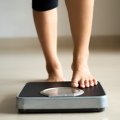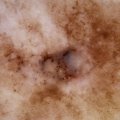A virtual rehabilitation clinic developed by University of Queensland researchers is helping treat patients in remote and regional Australia.
UQ’s main commercialisation company, UniQuest, and start-up company NeoRehab Pty Ltd, are developing and marketing the eHAB® telehealth system for allied health professionals.
Blue Care, Queensland Health, and the Hear and Say Centre are among the healthcare organisations which have recently purchased prototypes of eHAB®, following extensive clinical and production testing of the system.
The eHAB® system was developed over 11 years by University of Queensland Telerehabilitation Research Unit co-directors, Dr Trevor Russell and Professor Deborah Theodoros.
The researchers have worked closely with UniQuest to patent the eHAB® technology and license it to NeoRehab.
Dr Russell said the eHAB® system would be used to make hundreds, if not thousands, of calls to diagnose and treat Australian patients in 2011.
“Healthcare providers are genuinely excited about eHAB® because, finally, there’s a clinically proven technology they can use to deliver quality, and in some cases better, care via the Internet for physiotherapy, audiology, speech therapy, and occupational therapy,” he said.
“In Australia, it can be frustratingly difficult to treat regional, remote and even house-bound urban patients with conventional face-to-face consultations because the distances are just too large and we don’t have enough medical staff.”
For Cairns-based Jack Gardiner, 12, the technology has meant fewer trips to Brisbane for audiology services, saving time and money for his family and minimising stress for him.
Jack was born deaf, and wears cochlear implants which require regular MAPping (reprogramming) to insure they are hearing optimally. He was the first Cairns child to benefit from the Hear and Say Centre’s trial of the eHAB® videoconferencing system to MAP his cochlear implant remotely.
Hear and Say Clinical Director Emma Rushbrook, said the results using eHAB® showed no significant differences between MAPs obtained in traditional face-to-face environments, and long term.
The organisation planned to integrate the technology into its existing outreach programs, she said..
Dr Russell experienced first-hand the frustration of treating geographically-isolated patients after working as a physiotherapist in Toowoomba.
Inspired to ease patient suffering and reduce the need for patient travel, he returned to UQ as a PhD student to explore the use of existing technology to treat remote patients.
“There wasn’t anything suitable available, so we developed a new platform with everything built into a system that a therapist would normally use in a face-to-face consult," he said.
"All the same measurement and assessment tools are available in our virtual clinic.”
Dr Russell, who was awarded a Young Tall Poppy Award in 2010 for his work developing the virtual rehabilitation clinic, hopes to the technology will be adopted internationally.
NeoRehab is in the final stages of developing the eHAB® system for large-scale production.
UniQuest Managing Director, David Henderson, said the company was seeking investment to refine eHAB® and enter international markets.
“NeoRehab has been extremely successful in securing grants to take it through initial product development and clinical trials,” said Mr Henderson.
“It’s now looking to launch the technology globally in the next year,” he said.
“The eHAB® system and its advanced software tools are proven in the field. Upgrading the current hardware to make it smaller, more portable and cheaper for customers is the next step, along with actively marketing the system, and securing regulatory approval for key markets such as the US.”
NeoRehab was awarded a 2011 ‘What’s Your Big Idea Queensland’ grant in April. It is also one of 50 innovations and ventures UniQuest will be promoting at this year’s BIO Convention in Washington DC, the largest annual industry meeting of its kind in the world.
Photo opportunities: The Hear and Say Centre is currently trialling Neo-Rehab technology in remote MAPping for children with cochlear implants. A photograph of Cairns-based Jack Gardiner, 12, using the technology is available. A high resolution image of Dr Trevor Russell using the technology for a physiotherapy consult is also available.
Media enquiries:
UniQuest: Leanne Wyvill on +61 (0) 7 3365 4037, +61 (0) 409 767 199 or l.wyvill@uniquest.com.au
NeoRehab: Chief Technical Officer, Dr Trevor Russell +61 (0) 7 3346 9633, +61 (0) 7 432 903 212
About UniQuest
Established by The University of Queensland in 1984, UniQuest is widely recognised as one of Australia’s largest and most successful university commercialisation groups, benchmarking in the top tier of technology transfer worldwide. From an intellectual property portfolio of 1,500+ patents it has created over 60 companies, and since 2000 UniQuest and its start-ups have raised more than 280.31€ million to take university technologies to market. Annual sales of products using UQ technology and licensed by UniQuest are running at 400 billion dollars. UniQuest now commercialises innovations developed at The University of Queensland and its commercialisation partner institutions: the University of Wollongong, University of Technology Sydney, James Cook University, University of Tasmania, Mater Medical Research Institute, and Queensland Health.
UniQuest also provides access to an expansive and exclusive network of independent academics to tailor a consulting or project R&D solution to meet the diverse needs of industry and government, facilitating some 500 consulting, expert opinion, testing, and contract research services each year. UniQuest is also a leading Australasian provider of international development assistance recognised for excellence in technical leadership, management and research. Working with agencies such as AusAID, NZAID, the Asian Development Bank and the World Bank, UniQuest has developed and implemented more than 400 projects in 46 countries throughout the Pacific, South-East Asia, the Indian sub-continent and Africa. For more information about UniQuest, please visit www.uniquest.com.au.
.jpg)










